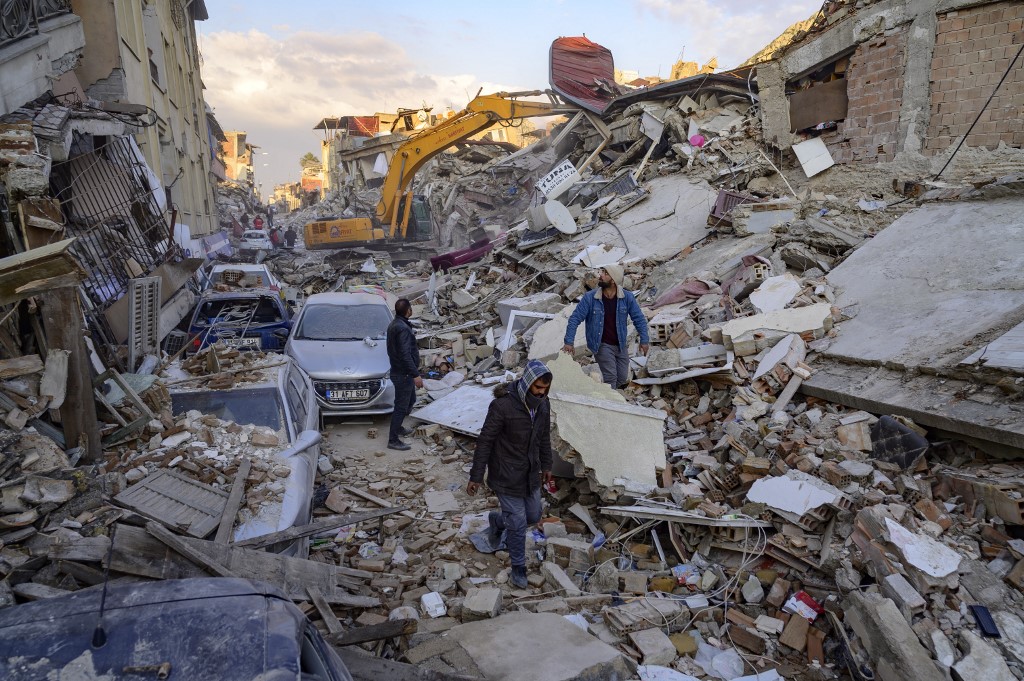In a rare development, a district governor’s office in the southern Turkish province of Kahramanmaraş has allowed an investigation into three public officials due to their role in the collapse of a building in which 69 people were killed during two powerful earthquakes last year, the private DHA news agency reported on Wednesday.
The magnitude 7.8 and 7.5 earthquakes, which struck 11 provinces in Turkey’s south and southeast, left more than 53,000 people dead and hundreds of thousands injured or displaced while causing massive devastation.
The collapse of the seventh bloc of the Güneşli Kocabaş building complex in Dulkadiroğlu led to the death of 69 people and the injury of 16.
Nine people including 41-year-old Ökkeş Say, one of the partners of the company that constructed the building, had been indicted on charges of “causing the death and injury of more than one person with conscious negligence” following an investigation into the collapsed building.
In line with a decision from the Dulkadiroğlu District Governor’s Office, three officials from the Dulkadiroğlu Municipality will be investigated for “causing the death or injury of more than one person due to negligence” and “abuse of duty.”
They include Arzu Özaydın, then deputy director of zoning and urbanization; electrical engineer Öner Gürbüzel; and architect Serap Binici, who were found to be at fault in a report drafted by an expert from Karadeniz Technical University.
The decision by the district governor’s office noted that the committee established to evaluate the prosecutor’s request to investigate the three officials found that they “had acted contrary to building inspection regulations.”
With the addition of the four municipal officials in Kahramanmaraş, the number of public officials investigated due to their role in the damage caused by the earthquakes has risen to 10.
In Turkey the investigation and prosecution of public officials for crimes committed in the course of their duties is subject to a law requiring state government authorities, depending on the status of the individual in question, to grant permission for the process to start. Prosecutors have no right to proceed with an investigation without this permission, regardless of the amount or quality of evidence implicating a public official in a crime. They must first send the evidence recommending criminal investigation to the relevant administrative authority, which will then conduct a pre-investigation of its own to determine whether to give the prosecutor permission to proceed.
The lack of legal action against public officials due to their role in the death of thousands of people in last year’s earthquakes drew condemnation from Human Rights Watch (HRW) and Citizens Assembly, a nongovernmental organization previously known as the Helsinki Citizens’ Assembly.
They released a statement in March describing the situation as “deeply troubling” and “unacceptable.”
Turkey has a history of failing to ensure that both private and public sector actors responsible for defective construction projects that have collapsed in earthquakes have been held accountable for their failures. Regarding the 1999 earthquake in the Marmara region of western Turkey, in which more than 17,000 people died, media reported on the very limited and slow proceedings against both private and very few public officials charged with misconduct. Most cases resulted in penalties being converted to fines or trials being dropped when they exceeded the statute of limitations.
